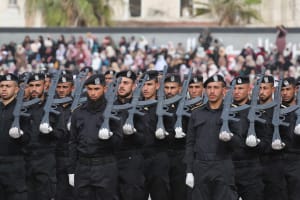Israeli security officials and IDF soldiers tell Kan News: Gaza War's objective is unclear, its management is inefficient

Israeli security personnel and IDF combat soldiers feel that they don’t know what the objective of the war is, and that its management so far has led to burnout and insufficient achievements, according to a report published this morning (Monday) by Kan News.
A reservist from the elite Yahalom unit told Kan News, “I’ve done 400 days of reserve duty. As a combat reservist, what’s happening in Gaza feels like a waste of time. It could be done much faster and much more forcefully. I was in the Strip, and we sat around for entire days without missions, without progress, without taking active measures. As a soldier in the field, you feel like your time is being burnt. ‘Full gas in neutral’ – pushing as hard as you can but standing still.”
“Next time, even fewer people will show up. People are extremely worn out – it interferes with studies and undermines people's ability to sustain their businesses."
“We did seven months of reserve duty. In the previous round, only half the people came. People aren’t willing to come anymore. Last time, I sat and guarded some kind of base on the Netzarim road. I felt like we were doing nothing. Next time, even fewer will come. People are extremely burned out — it interferes with studies and undermines people's ability to sustain their businesses,” shared one reservist from the Commando Brigade.
“We have full trust in the fighters up to the battalion commander. We can’t believe in the political or top military leadership.”
A regional security officer in the Gaza envelope testified, “We have full trust in the fighters up to the level of the brigade commander. We train with them, we see and hear them daily. But we can’t trust the political leadership or senior military command – simply because we see their decisions and the orders they pass down. We see that those decisions and orders are not leading us to a decisive victory.”
“We’re not being given all the weapons we need to defend ourselves next time.”
“For example, the infiltrations in the perimeter over the past two weeks,” he added. “As a resident and a security officer, it’s unthinkable that this is happening a year and a half later. Infiltrations came out of shafts that weren’t known, less than half a kilometer from the border. They could have kidnapped or broken into Israel. We’re not given all the weapons we need to protect ourselves next time – they say there’s no budget. There are many examples.”
“How is it possible that infiltrations into the perimeter zone are still happening – this is our first line of defense?”
Yishai Spaz, a member of the emergency response team in Moshav Yated, near Gaza, said, “We constantly get alerts from the army about infiltrations and operational capabilities that Hamas still has. How is it that even now, a year and a half later, there’s still a possibility to penetrate the perimeter – our first line of defense? If this is still happening, it means Hamas’s military power remains significant and hasn’t been hit hard enough.”
Brig.-Gen. (res.) Oren Solomon warns: “The price paid by Hamas is not a critical mass.”
Brigadier -General (res.) Oren Solomon – formerly Gaza Division’s combat director, its debriefer, and head of security doctrine at the National Security Council – warns, “Contrary to what the IDF is telling the public – the price Hamas has paid is not a critical mass. They’re not just recovering, they’re improving and refining their capabilities, learning lessons on how to defeat Israel next time.”
“They wore out the reserves, wasted ammunition, fuel, and public resilience.”
A former senior officer in the Gaza Division, who served during Oct. 7, said,
“The fighting this past year was ineffective. I warned in real time with ten well-reasoned and detailed documents. The reserves were worn out for nothing – as were ammunition, fuel, and public patience.”
He added: “Hamas is silent as a strategy. They now use multi-theater IED deployment combined with cameras. These capabilities have recently developed – not just wired or pressure-detonated bombs, but remote-controlled ones.”
He continued, “Across the Strip, there are dozens of tunnels and hundreds of shafts. Every attack tunnel begins 2 to 3 kilometers past the barrier. Until we reach those areas, we won’t be able to neutralize the threat of attack tunnels. Hamas smuggles in various ways, including by drones, and they take any camera they can get their hands on – even car rearview cameras. They have thousands of cameras and monitor all combat zones. When an IDF force arrives, Hamas can activate from afar.”
“Hamas uses all of the IDF’s unexploded ordnance and is rebuilding its anti-tank capabilities.”
The former senior officer warned that Hamas collects and reuses all of the IDF’s unexploded ordnance, and is restoring its anti-tank capabilities:
“Hamas is deceptive – seemingly quiet. It’s using a tactical-strategic attrition strategy. Through continuous attacks on soldiers, they’re creating an ability to wear down the army, to exhaust the home front, and apply pressure.”
“Their war is a visionary one aimed at destroying Israel. Their lesson: next time, come with buses and take hostages.”
“Their war is ideological, looking toward the long-term destruction of Israel. We must neutralize Hamas’s ability to control the population, control the humanitarian situation and hold territory for protection. Their takeaway from this conflict is to come next time with buses and abduct civilians.”
“Hamas is the population.”
“Hamas is the population. Even those who curse them don’t speak against the massacre. In the past year and a half, we’ve seen dozens of Gazans cursing Hamas – not one mentioned the massacre and its horrors. That’s critical to understand who the population is. They only speak about what Hamas brought upon them.”

Kan.org.il is the Hebrew news website of the The Israeli Public Broadcasting Corporation
You might also like to read this:














